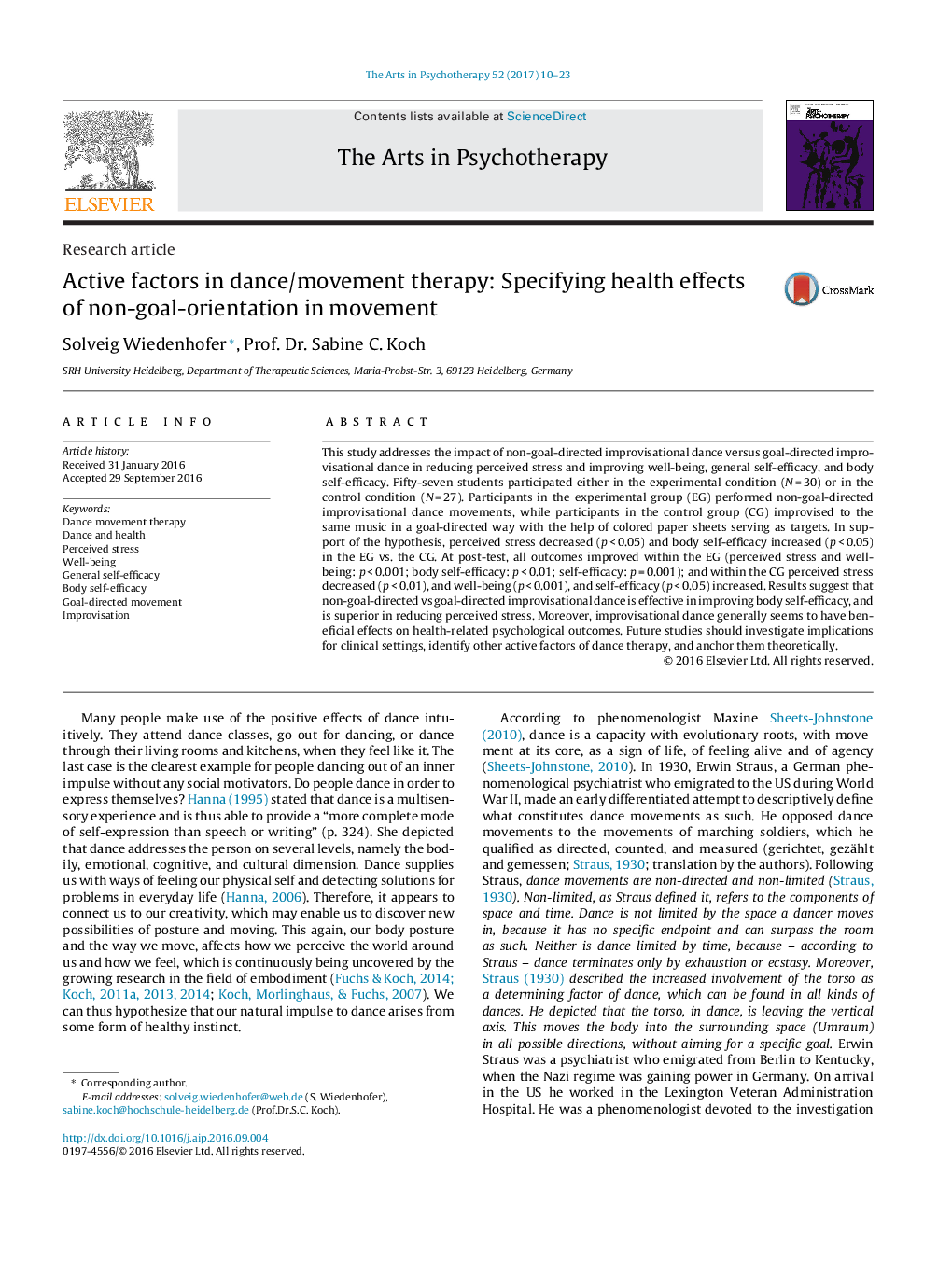ترجمه فارسی عنوان مقاله
عوامل فعال در رقص / حرکات جراحی: تعیین تأثیرات بهداشتی غیر هدف گرا در جنبش
عنوان انگلیسی
Active factors in dance/movement therapy: Specifying health effects of non-goal-orientation in movement
| کد مقاله | سال انتشار | تعداد صفحات مقاله انگلیسی |
|---|---|---|
| 118100 | 2017 | 14 صفحه PDF |
منبع

Publisher : Elsevier - Science Direct (الزویر - ساینس دایرکت)
Journal : The Arts in Psychotherapy, Volume 52, February 2017, Pages 10-23
ترجمه کلمات کلیدی
حرکات ورزشی رقص، رقص و سلامتی استرس درک شده، تندرستی، خودکارآمدی عمومی، خودکارآمدی بدن، حرکت هدفمند، ابتکار،
کلمات کلیدی انگلیسی
Dance movement therapy; Dance and health; Perceived stress; Well-being; General self-efficacy; Body self-efficacy; Goal-directed movement; Improvisation;

